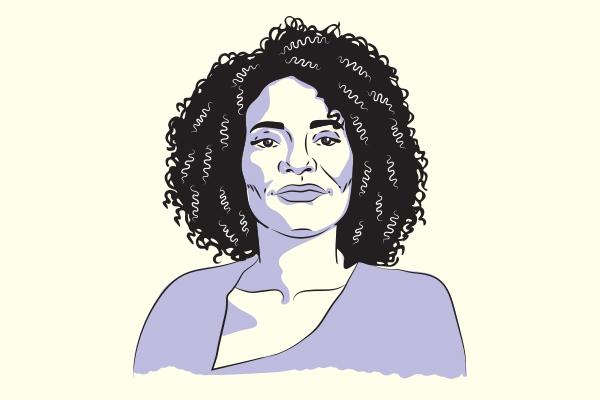Jordan Metoyer is an economics and liberal arts honors/urban studies alumna from Inglewood, California, by way of Sugar Land, Texas. She is the recipient of a 2017 Schwarzman scholarship, which will send her to pursue a master’s degree in global affairs with a concentration in public policy at Tsinghua University in Beijing this fall. As a UT Austin student, Metoyer launched a successful affordable student housing campaign, filmed a short documentary on suburban poverty and conducted research on the Fair Housing Act for the LBJ Presidential Library. She was awarded a 2013 Truman scholarship, a Rapoport service scholarship and Phi Beta Kappa designation, among other honors. Following graduation, Metoyer accepted a position in the Obama administration’s White House. She currently works in San Francisco at 18F, an office in the General Services Administration.
What is the most important thing you learned at UT Austin?
I pushed myself outside of my comfort zone. Some of my closest friends from college have drastically different backgrounds, lived experiences, religious beliefs and political ideologies. Still, I appreciate who they are and the commonalities that bind us — a shared love of Texas, for example — rather than the walls which divide us. I left college with an appreciation for cognitive dissonance.
What did you take away from your White House experience?
There are three things I took away from my time at the White House. The first was a saying we used quite a bit during the last few years of the Obama administration: “fight cynicism.” At its essence, public service is about service delivery; it’s about government maintaining integrity by keeping its promise to meet basic human needs. I have an incredible amount of hope in the ability of government to put citizens first in policy design and implementation.
Many principals in the White House would often echo Denis McDonough and remind their staff that there’s no secret meeting. When you have a seat at the table, it’s your responsibility to prepare, contribute and implement whichever decision is made, even if it is not your own.
The third and final takeaway was a deep appreciation for Washington’s civil servants, individuals who serve the American people irrespective of the political office at the helm of Congress or the White House. These brave members of our government agencies work countless hours, often with little to no credit, to uphold the integrity of public institutions, fight internal corruption and keep the system running.
Why did you pursue study in Beijing?
By 2025, China will have 221 cities, each with 1 million-plus inhabitants. By 2030, up to 70 percent of the Chinese population — some 1 billion — will live in cities. Managing urban areas is one of the defining issues of our generation, with implications cutting across academic and professional silos. Mass urbanization will change the way the world thinks about global security, climate change, social unrest, cultural exchange, infrastructure, technological innovation and basic human-to-human interaction. All of our toughest political, economic and ideological battles will play out on the global stage, with cities as the main actors, and there’s no doubt in my mind that China will play a leading role.
Equally as astonishing as urbanization rates are the millennial demographic trends. With over 7 billion people on this planet, millennials account for roughly 2 billion, with 58 percent of global millennials living in Asia.
The Schwarzman scholarship is the perfect confluence of urbanization, Asia and millennials. I’m thrilled to be a part of it.
Why is studying the liberal arts important?
There’s a great deal of discussion regarding artificial intelligence and automation. While some use the data on automation and technology to provoke anger and fear, the shifting economy presents an incredible opportunity for universities to celebrate the humanities and liberal arts. The leaders of institutions in the years ahead will not be individuals who can spit out data, but rather, evaluate information by evaluating the “white space.” Liberal arts teaches this critical thinking, the ability to view a situation, trend or event from a unique perspective.
